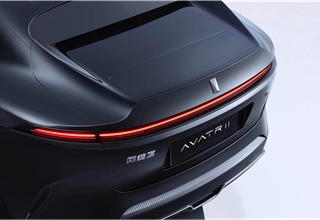Tech, AI and Automobiles: Key Legal and Ethical Challenges

The automotive industry today is near-unrecognisable in comparison to its storied past, as different industries began to intersect towards the end of the 20th century. Indeed, with the explosion of recent tech innovation, and the breakneck pace of integration into new models of vehicles, there’s never been a better time to work on the frontlines of the automotive industry.
It is especially the bleeding edge of automotive tech today that makes the industry so exciting, with Artificial Intelligence (AI) driving fascinating innovations in autonomous vehicles and assisted driving. Things once thought to be little more than science fiction are steadily becoming reality.
That said, there are some key challenges that the tech industry faces, which make support in tech-led businesses more important than ever. As automotive manufacturers race to incorporate new technological features into their vehicles – AI features included – specific challenges become particularly important to address. How do these challenges present themselves, and what should both automotive businesses and consumers be bearing in mind as a result?
Cybersecurity
Cybersecurity has been of paramount importance for decades but hasn’t been at all relevant to the automotive world until the turn of the millennium. As onboard computers got more sophisticated, internet connectivity for vehicles became a foregone conclusion. Today, cars are sharing immense amounts of information, whether with one another, emergency services, the manufacturer, or the user.
In amongst all of this is the opportunity for hacking, which could target user data or even the car’s core controls. Vulnerabilities here could endanger drivers’ confidential information, or even their lives – making robust protection measures important to design in.
AI, Autonomy, and Liability
As touched upon in our introduction, AI is fuelling significant change in the automotive industry, with particular regard to the world of autonomous – or self-driving – cars. There are vehicles on roads in the US right now with some autonomous functionality; this functionality, however, has already led to fatalities. These fatalities have prematurely brought questions before judges, regarding liability. As cars become more autonomous, more blame may lie with manufacturers in the event of preventable accidents.
Reliability
Finally, and as a more general note on modern vehicle design, there is a propensity for drivers to get comfortable with deferring to their vehicle – one that has been unintentionally invited by tech-rich vehicle design. Self-driving cars are the logical end-point of this thinking, where the driver defers road control and authority to the vehicle, but it is already happening in conventional vehicles.
Drivers will defer to their rear cameras and parking sensors, rather than physically turn to look as they park; lane detectors have become a tool as opposed to a warning. This is a vital consideration in future automotive design, to put human safety before modern convenience.



